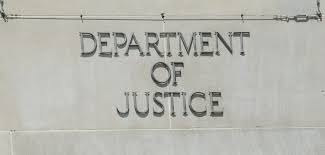District Court Rejects Challenges to ITAR Criminal Charges

The Justice Department has charged Quadrant Magnetics LLC and three executives, Phil Pascoe, Scott Tubbs, and Monica Pascoe in a nine-count indictment for the illegal shipment of 70 drawings to a Chinese company without securing a license.
The indictment alleges that between January 2012 and December 2018, the defendants conspired to send approximately 70 drawings containing export-controlled technical data to a company located in China without a license from the U.S. government, in violation of the Arms Export Control Act and the International Traffic in Arms Regulations. The technical data drawings were the property of two U.S. companies and related to end-use items for aviation, submarine, radar, tank, mortars, missiles, infrared and thermal imaging targeting systems, and fire control systems for DOD.
The indictment further alleges that Quadrant Magnetics imported rare earth magnets that were smelted and magnetized by a company in China. Quadrant then sold these magnets to two U.S. companies which included them in components sold to DOD for use in the F-16, the F-18, and other defense assets in violation of the Defense Acquisition Regulations System (DFARS). Under the DFARS specialty metal clause, rare earth magnets sold to DOD must be produced and magnetized in the United States or an approved country. China is not an approved country.

The US Munitions List designates specific items as ITAR-controlled. The USML also lists “[p]arts, components, accessories, and attachments specially designed” for military equipment, including aircraft. § 121.1 Category VIII(h)(1). If parts are specially designed for use in defense articles listed on the USML, then they are also ITAR- controlled. See 22 C.F.R. § 120.41. The magnets at issue in this case are not enumerated on the USML and are ITAR-controlled because they are “specially designed” within the meaning of § 120.41.
The defendants argued that the magnets fell within one of the exceptions for commercially-available items, meaning there is no reason for the ITAR to apply since the magnets were otherwise commercially available. The Court ruled that the government did not bear the burden of proving that the exception did not apply; instead, the Court ruled that such an exception could be raised as an affirmative defense at trial.
The Court rejected two other claims raised by the defendants.
First, the defendants challenged the criminal ITAR and Arms Export Control Act claims by claiming the laws and regulations are “unconstitutionally vague” because it is too hard to conclude whether the magnets have a commercial equivalent when they are exported.
The defendants argued that the only way to know whether there is a commercial equivalent would require them to check every magnet used in a commercial product. Judge Hale rejected this argument, finding that the regulations give “fair notice” to companies that they need a license to export if they are unable to establish that their item falls under the commercially-available exception.

Second, the Court denied motions to suppress search warrants executed by the government during the investigation. The defendants alleged that the affidavits in support of the search warrants failed to establish probable cause. After reviewing the affidavits, the Court reached a different conclusion that the affidavits supported a finding of probable cause.
In March 2024, Quadrant filed motions to dismiss after the government accidentally posted an unredacted report containing information about the sensitive technical data to PACER. Judge Hale denied the motion in May.















